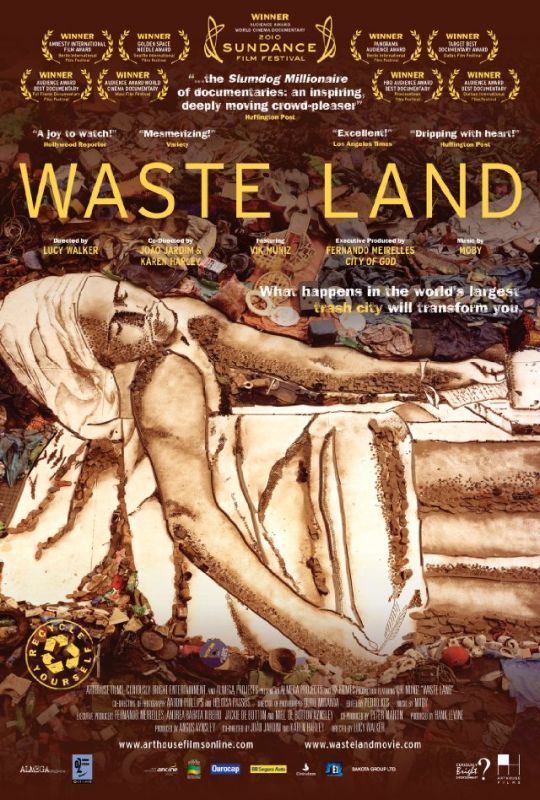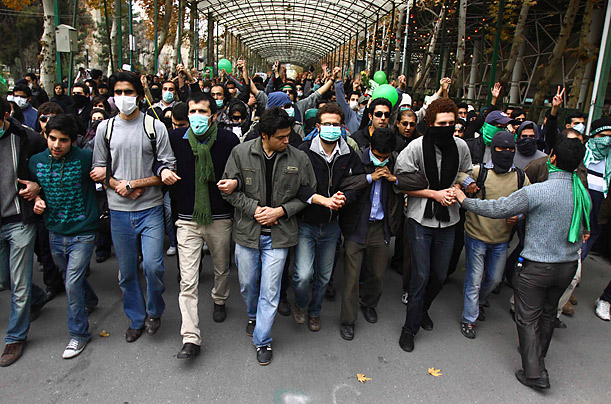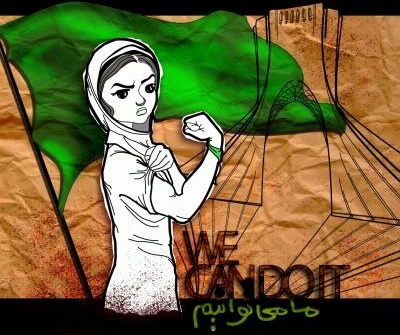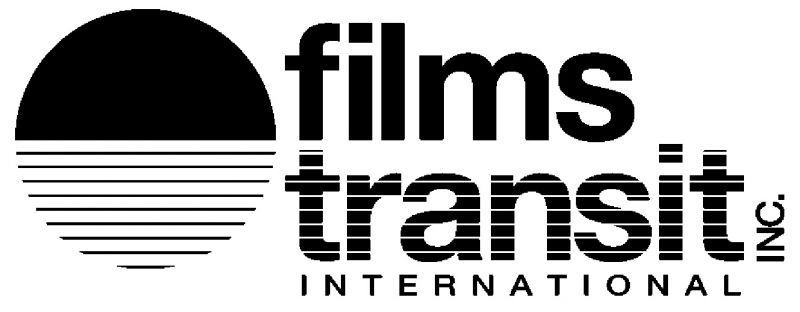|
|
||
|
Pro Tools
FILMFESTIVALS | 24/7 world wide coverageWelcome ! Enjoy the best of both worlds: Film & Festival News, exploring the best of the film festivals community. Launched in 1995, relentlessly connecting films to festivals, documenting and promoting festivals worldwide. Working on an upgrade soon. For collaboration, editorial contributions, or publicity, please send us an email here. User login |
IDFA Feature Films In CompetitionGetting a prize at IDFA, the International Documentary Film Festival Amsterdam, can be of major significance to a documentary film at the start of its long journey through the Festival circuit and, hopefully, to theatrical, television and ancillary distribution. The Festival's imprimatur is highly regarded and respected in the world of programmers and festival directors, who are here in Amsterdam scouring for the best in non-fiction film. Here is the first part of the films competing for the top prize at IDFA (descriptions supplied by the Festival):
“9 Months 9 Days” In early August of 2006, three Mexican fishermen were rescued from the sea. They were found near the Marshall Islands in the Pacific Ocean, more than 5,000 miles from home. After an accident on their boat, they were swept away and drifted for nine months and nine days. Once their identity was established, their story went around the world.
“Blood Relation” In the early 1940s, 14-year-old Pnina disappeared nearby her house in what is now Israel. Years later, she started sending letters to her family. It turned out that she had married an Arab and had children with him, but it is never completely clear if she ran away or was kidnapped. Director Noa Ben-Hagai found her great-aunt Pnina’s letters and asked her uncle, a retired colonel in Israeli intelligence, to find the unknown family in the Palestinian Territories. What does reconciliation within just one family mean for the reconciliation between the people of the Middle East?
“Contact” The film features unique archive footage of an exceptional meeting that took place in 1964, in a desolate area of Australia. Yuwali is one of the Martu, a community of women and children who spent their whole lives living in the desert, until the area had to be evacuated for missile testing. In Contact, 62-year-old Yuwali vividly recalls how frightening it was to see white men for the very first time. She fled the area with a group of 20 Aborigines, afraid of the white “devil men” whom they believed would surely eat them. Yuwali’s eyewitness testimony is interspersed with the stories of the Australians who explored the area.
“Dreamland” Iceland is an attractive spot for investors in green energy. The financial returns are enormous for this sparsely populated nation, but the negative impact on nature conservation is also significant. The American company Alcoa has convinced the Icelandic government to give up a large portion of the island’s eastern region for “green” aluminum production, leading to the loss of natural beauty, vegetation, animal life, and agriculture. The film is an ode to a threatened landscape, with magnificent helicopter shots of breathtaking, rugged terrain where waterfalls, geysers and vast green steppes still abound—for now.
“Earth Keepers” Eco-activist Mikael Rioux from Trois-Pistoles in Québec is looking for ways to create support in his own community for the creation of a more sustainable way of life. Inspired by his mentor Christian de Laet—an old hand in the environmental movement—Rioux travels the world to seek the counsel of his mentor’s sympathizers in poverty-stricken India, in wealthy, progressive Sweden, and elsewhere. The problem is clear: there is a crisis on the way.
“The Edge of Dreaming” If you dream your own death, can it come true? Director Amy Hardie thinks so. At least if you really start to believe in the dream. The Edge of Dreaming shows how this happened to her. One night, she wakes with a start after dreaming that her horse has died. The next morning, she finds him dead in the fields near her house. When, shortly afterwards, the deceased father of her oldest child comes to her in a dream and tells her that her next birthday will be her last, she starts to worry. Her search for a solution leads her to neuroscience, psychotherapy, Shamanism, and the insight that she cannot ignore the ravaged state of our planet.
“Enemies of the People” Enemies of the People takes a peek at “the project” of Thet Sambath, whose parents were among the approximately two million who perished under the Khmer Rouge regime in the late 1970s. In an attempt to win their trust so they will admit to their deeds on camera, Sambath now spends more time and money on the erstwhile murderers than on his wife and children. We watch as Sambath contacts the culprits and confronts them with their past; one of them even demonstrates how he cut people’s throats. The filmmakers allow the horrific stories to speak for themselves, in contrast to the propaganda newscasts from back then, full of happily singing farmers.
“Eyes Wide Open - A Journey Through Today’s South America” Uruguayan documentary filmmaker Gonzalo Arijon reevaluates the state of Southy America today. His search takes him from the soybean plantations of the Brazilian Amazon and the tin mines of Bolivia to the deep jungles of Ecuador. Arijon’s politically committed film allows the local populations to speak for themselves, interspersing this with archive footage of speeches by the likes of Hugo Chávez (Venezuela), Lula da Silva (Brazil), and Evo Morales (Bolivia).
“Farewell” Constructed entirely of archive footage, Farewell is the story of English journalist Lady Grace Drummond-Hay. In August of 1929, two months before the stock market crash would plunge the world into the Great Depression, newspaper magnate William Randolph Hearst added Drummond-Hay to the passenger list of the Graf Zeppelin as the only female. Using Drummond-Hay’s diary entries and newspaper articles as a basis, the film sketches a picture of the occasionally tough journey and a changing Europe.
“Freetime Machos” During a rugby match, Matti broke his pinky finger. It hurts something awful, but his friends just make fun of him: a real man would at least break an arm or a leg. In Freetime Machos, we meet Matti, his best friend Mikko, and a couple other members of the most northern and third worst rugby club in the world.
“Jaffa, The Orange’s Clockwork” The orange may not seem like the most obvious point of departure for an examination of the Israeli-Palestinian conflict, but during the last century, the disputed border area between Israel and the territories was one of the world’s biggest exporters of this “orange gold.” Director Eyal Sivan reconstructs how Jaffa started out as a Palestinian place name before becoming an Israeli brand name, and how the orange harvest shifted from a joint undertaking into a symbol used by both parties in the escalating conflict.
“Last Train Home” In a calm and observational style devoid of comment, Lixin Fan captures two years in the life of a father and mother who left the poverty of the country 16 years ago to try their luck in the new economic zones, leaving their daughter behind with her grandparents. Now they work long hours in one of the numerous gray factories that supplies the West with cheap clothing. Painful moments reveal that the patience the Chinese are known for has its limits.
“The Miscreants of Taliwood” This isn’t Hollywood, and it isn’t Bollywood: this is Taliwood. Australian filmmaker and visual artist George Gittoes spent two years in the Taliban-occupied north of Pakistan. The surreal war situation there doesn’t stop local filmmakers from making lowbrow movies with large doses of half-naked women, action heroes, and pulp fiction. At the same time, he discovers that the Taliban is also disseminating a form of entertainment that people are just as greedy for: recordings of real beheadings and executions, not to mention propaganda films about Al-Qaida training camps. In the end, the largest film industry turns out to be the war on terror.
“The Most Dangerous Man in America” During the 1960s, Daniel Ellsberg was one of the most promising analysts in the U.S. Department of Defense. This all changed when he was asked by Secretary of Defense Robert McNamara to draw up a secret report on the American presence in Vietnam. At the time, the war in Vietnam was in full swing. The outcome of his investigations led Ellsberg to realize that five successive U.S. Presidents had lied to the American people about their country’s role in the Vietnam conflict. Interviews and historical footage create an impression of a dispute that eventually had far-reaching consequences for press freedom in the United States, as well as for the course of the war in Vietnam.
“The Player” Director John Appel has a deeply rooted interest in gambling. His father was an ardent horserace player, which caused problems in the family to say the least. Shortly before he died, Appel’s father wrote him a letter while he was still at school. This letter serves as Appel’s point of departure for an investigation into the causes of his father’s destructive gambling mania, which he blends in the film with the stories of several other men, alter egos of his father.
“Space Tourists” In pursuit of their ultimate dream, more and more multimillionaires are traveling to Kazakhstan and the remote, hidden rocket launch site Baikonur and accompanying training centre, Star City. Here, Russian cosmonauts celebrated their achievements until Gorbachev pulled the plug on the space program in the late 1980s. Nowadays, the money is gone. In order to finance trips into space, the Russians now sell the third seat in the capsule to extremely wealthy Americans, who with a ticket costing $20 million, cover almost half of the cost. American businesswoman Anousheh Ansari is one of these travelers. Space Tourists shows, non-chronologically, how she prepares for the journey by Soyuz rocket to the International Space Station.
“War Games and the Man Who Stopped Them” A uniquely constructed portrait of the Polish Colonel Ryszard Kuklinski, who provided the CIA with more than 40,000 strategic documents from the Warsaw Pact during the Cold War. Was he a traitor, or the savior of Poland? Photos of Kuklinski come to life with 3D motion effects, and the recurring theme of a war game calls on the viewer to actively pass judgment on Kuklinski’s choice. Sandy Mandelberger, IDFA Dailies Editor
22.11.2009 | IDFA International Documentary Festival Amsterdam's blog Cat. : activist al-Qaeda Al-Qaida training camps Alcoa America Amsterdam Amy Hardie Artist Arts Australia Australia Belgium Ben Hagaï businesswoman Cambodia Canada Central Intelligence Agency China Christian de Laet Christian Frei Colonel counsel Daniel Ellsberg Daniel Ellsberg Dariusz Jablonski Director Ditteke Mensink editor Enemies of the People energy Entertainment Entertainment Europe Evo Morales Eyal Eyal Sivan Films finance Finland France Freetime Machos George Gittoes Germany Gonzalo Arijón Gorbachev Grace Drummond-Hay Group of 20 countries Hugo Chavez Human Interest Human Interest Iceland Icelandic government idfa IDFA Dailies International Documentary Film Festival Amsterdam International Documentary Film Festival Amsterdam International Space Station Israel Israeli intelligence Jaffa John Appel Judith Ehrlich Kazakhstan Khmer Rouge Last Train Home Lula da Silva Major Marshall Marshall Islands Martin Butler Mexico Middle East Mika Ronkainen Mikael Rioux Netherlands neuroscience Noa Ben-Hagai Person Attributes Person Career player Pnina Poland POV Ramírez González Rick Goldsmith Rob Lemkin Robert McNamara Ryszard Kuklinski Sandy Mandelberger Scotland Secretary of Defense Slovakia Social Issues Social Issues South America Switzerland Sylvie Van Brabant Taliban The International Documentary Film Festival Amsterdam The Most Dangerous Man in America: Daniel Ellsberg and the Pentagon Papers Thet Sambath Thorfinnur Gudnason U.S. Department of Defense United Kingdom United States Vietnam War War Warsaw William Randolph Hearst Yuwali FESTIVALS |
LinksThe Bulletin Board > The Bulletin Board Blog Following News Interview with IFTA Chairman (AFM)
Interview with Cannes Marche du Film Director
Filmfestivals.com dailies live coverage from > Live from India
Useful links for the indies: > Big files transfer
+ SUBSCRIBE to the weekly Newsletter Deals+ Special offers and discounts from filmfestivals.com Selected fun offers
> Bonus Casino
User imagesAbout IDFA International Documentary Festival Amsterdam Online Dailies of the International Documentary Film Festival Amsterdam View my profile Send me a message The EditorUser contributions |




























